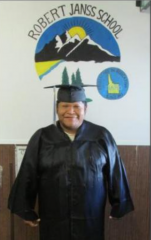Juvenile Education

Special Education
The Individuals with Disabilities Education Act (IDEA) requires the department to provide a free and appropriate public education in the least restrictive environment. Eligibility criteria to receive Special Education services are students under twenty-two (22) years of age who have a previous special education history, have yet to obtain a high school diploma, continue to need special education and related services to benefit from participation in an educational assignment, consent to receive special education services, and have a current transition plan/individualized education plan.
Title One
Includes students under the age of 22 and enrolled in classes 15 hours a week. School programs are designed to provide services to meet the unique needs of youthful, at-risk residents.
Goals
- Identify and implement evidence-based teaching strategies to enhance student learning
- Strategy: Collect and review assessment data, and revise curriculum and instruction accordingly
- High school credit is granted for non-traditional learning experiences based on graduation standards
- Strategy: Collaborate with facility and community providers to identify learning experiences that lead to high school credit.
- Strategy: Align these credits with graduation standards and incorporate into graduation plans
- Blended learning techniques will be leveraged to optimize efficiency, and to tailor and expand teaching methodology to best meet student learning style needs
- Strategy: Provide staff development for the implementation of educational software
- Strategy: Embed educational software lessons and objectives into curriculum and personal education plans.


